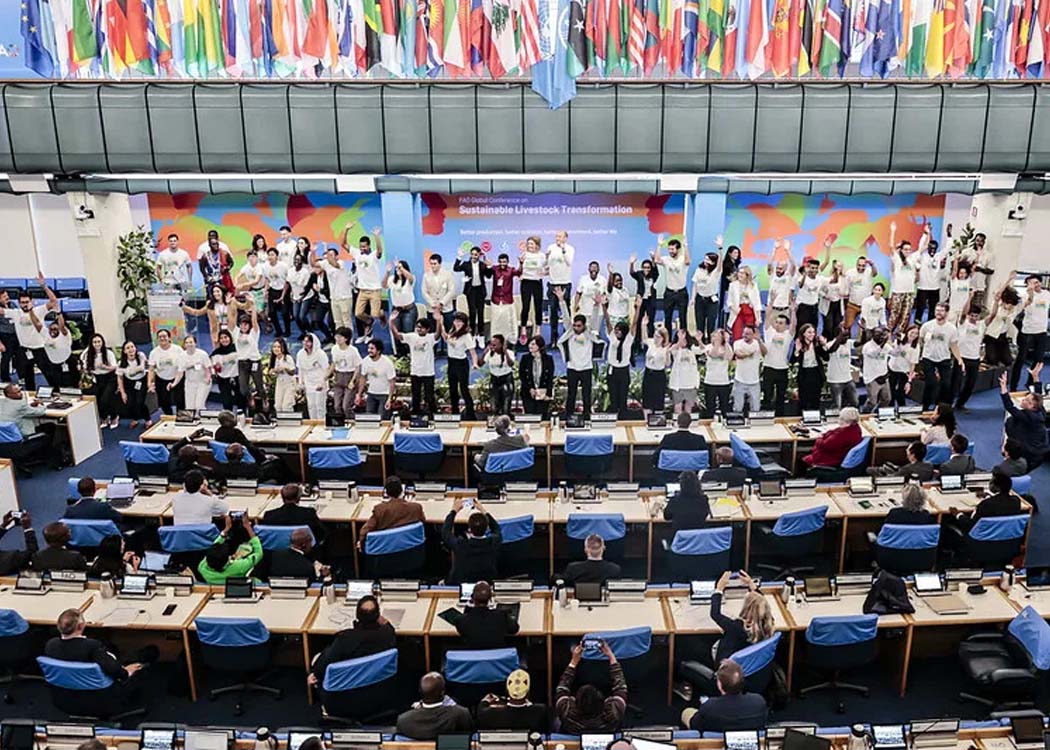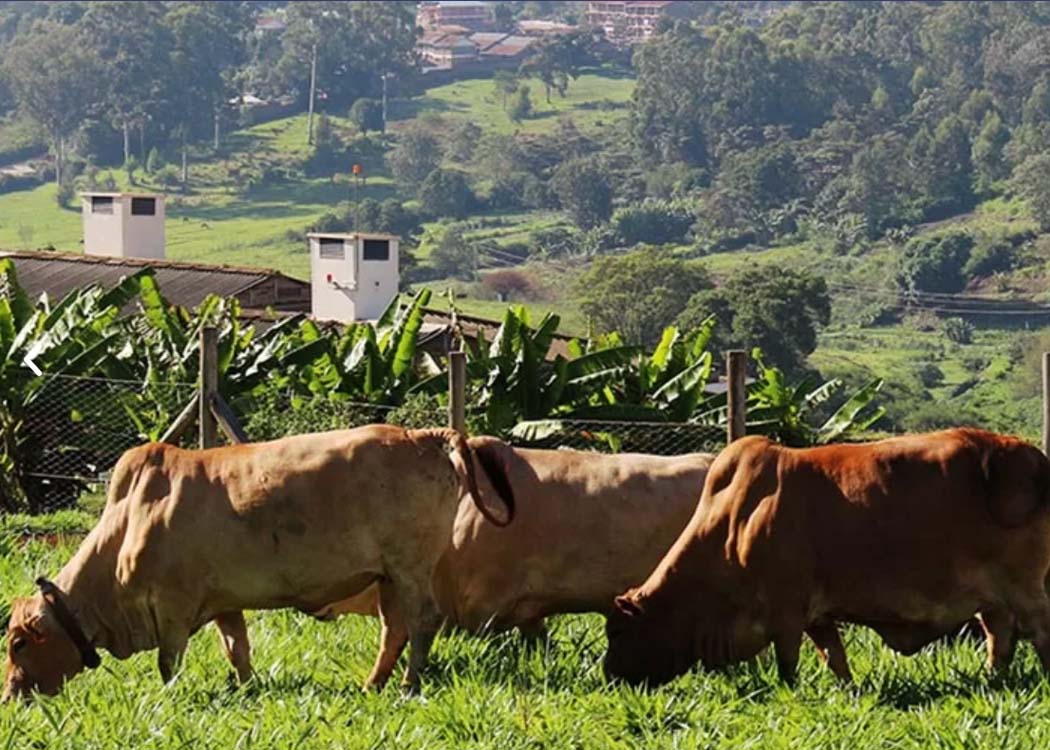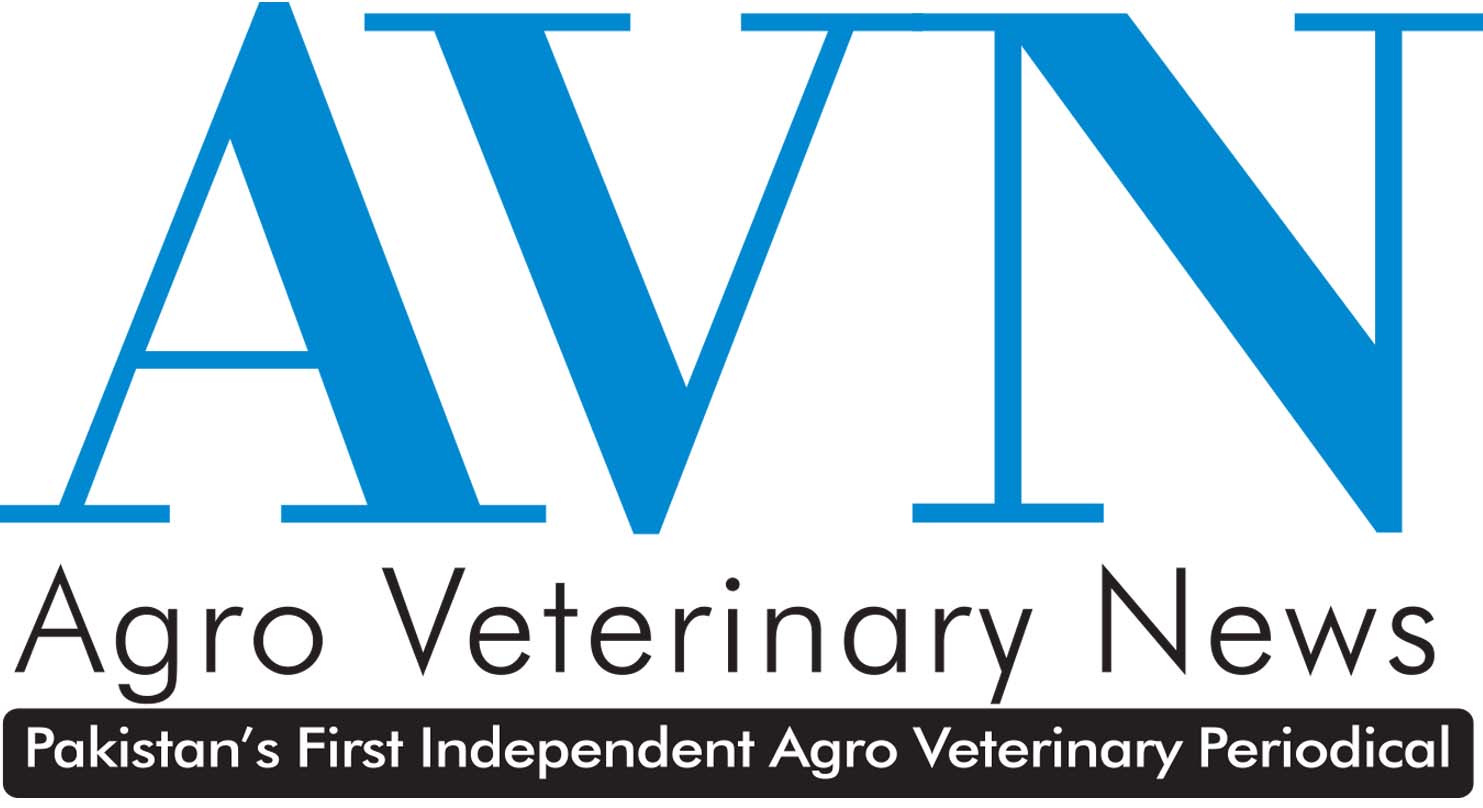Policymakers, farmers and researchers meet in Rome to scale innovations, spotlight low-emission systems and accelerate One Health solutions.
ROME: the Food and Agriculture Organization of the United Nations (FAO) hosted the second Global Conference on Sustainable Livestock Transformation from 29 September to 1 October 2025, convening policymakers, farmers, private sector representatives, researchers and civil society to move from dialogue toward large-scale action.
The three-day programme opened with remarks from FAO Director-General Qu Dongyu and featured high-level ministerial panels, plenaries, thematic forums and a dedicated exhibition showcasing concrete innovations and good practices that reduce emissions, improve animal health and strengthen food security. Organizers said the conference emphasized “fostering change, scaling innovations and driving solutions” for livestock systems that are efficient, inclusive and climate-resilient.
Key themes included climate mitigation and low-emission livestock systems, sustainable feeding and breeding, animal health and welfare, One Health approaches, and the role of innovation and finance in speeding up transformation. The event combined expert panels with pitch sessions that put promising technologies in front of global buyers and development partners.
A highlight of the conference was the recognition of scalable innovations: finalists and winners from a global call for good practices were presented on stage, and a shortlist of 20 technologies and digital platforms was promoted for broader adoption. One such innovation, AgNav — a digital sustainability platform developed with Irish partners — was selected among top entries and presented in the “Pitching Technological Innovations” session. Conference organisers said spotlighting such tools helps accelerate farmer uptake and policy support.
The conference also reinforced the farmers’ voice. Delegations from farmer organizations, including the World Farmers’ Organisation, shared field-level commitments and practical case studies on sustainable grazing, regenerative feed practices and market linkages that boost incomes while lowering environmental footprints. FAO stressed that transformation must be locally led, gender-responsive and inclusive of smallholder and pastoral systems.
Experts at the event discussed finance instruments and policy packages needed to scale low-emission livestock systems, including blended finance, performance-based subsidies, and incentives for climate-smart feed and breeding programs. Sessions examined how to align national livestock strategies with the Sustainable Development Goals and the Paris Agreement while protecting livelihoods.
Participants underlined measurable outcomes the conference seeks to deliver: a compendium of tested solutions, a public-private roadmap for scaling innovation, stronger monitoring metrics for emissions and animal health, and commitments from governments and partners to pilot and invest in proven approaches. FAO representatives said the aim is to move quickly from pilot projects to national policy uptake and regional replication.
Voices from the ground called for concrete support for extension services, farmer training, youth engagement and digital tools that make sustainability practical for producers. Side events and youth forums showcased leadership programs and capacity-building models designed to bring the next generation into sustainable livestock careers. Observers noted that combining technical innovation with social inclusion is essential to long-term success.
Looking ahead, FAO said it will compile conference outputs and follow up with regional roadmaps and implementation support to governments and partners. The organisation framed the conference as a stepping stone toward more resilient food systems where livestock contributes to nutrition, livelihoods and climate goals without undermining planetary boundaries.





